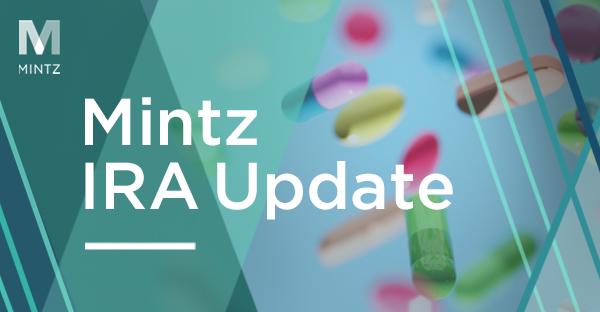
Madison’s practice focuses on health care regulatory, transactional, and compliance matters. She represents clients across the health care sector, including providers, health insurance plans, PBMs, pharmacies, and health care technology firms. She has experience advising clients on Medicare and Medicaid coverage requirements, as well as state regulatory compliance regarding privacy and telehealth. She also regularly handles due diligence for health care transactions, conducts licensure analyses, and drafts contracts for PBMs and other health care sector clients.
In attending George Washington University School of Law, Madison earned a JD with a concentration in Health Law, served as a student attorney at GW Law’s Health Rights Law Clinic and an Administrative Law teaching assistant. She also interned with the National Health Law Program (NHeLP), where she researched state Medicaid program requirements, the Affordable Care Act and related case law. During her time at NHeLP she also prepared a legal memorandum analyzing nonprofit hospitals' charity care spending.
Madison enjoys sailing, reading fiction, and spending time with her dog Betty in her free time.
viewpoints
Filling the Gaps and Navigating Fine Lines: Regulatory Compliance Framework and Considerations for California Medical Spas
November 5, 2025 | Blog | By Daniel Cody, Hassan Shaikh, Madison Castle, Grace Callander
Known for its aesthetics and wellness culture, California continues to be a leading destination for new wellness and medical aesthetics practices (collectively, medical spas). Yet, unlike other states previously discussed in this series, California does not currently have any laws or regulations specifically intended to govern medical spas. Depending upon the level of clinical care provided, medical spas in California may be subject to less-restrictive cosmetology laws and regulations, or the stricter laws and enforcement mechanisms applicable to traditional medical practices, including a robust set of rules regulating ownership, supervision, scope of practice, and advertising.
Understanding whether a medical spa is subject to medical practice laws is a critical analysis that owners and operators in California should determine prior to providing any services in the state. This post explores the fine line between medical spas subject to purely cosmetology requirements versus medical practice laws, highlighting the legal risks and compliance obligations faced by medical spas operating under the purview of traditional medical provider laws and regulations.
Beyond the Clinical Setting: OCR’s Settlement with Cadia Further Demonstrates OCR’s Focus on HIPAA Compliance in the Digital World
October 6, 2025 | Blog | By Kate Stewart, Cassandra Paolillo, Madison Castle
On September 30th, 2025, the U.S. Department of Health and Human Services (HHS), Office for Civil Rights (OCR) announced a settlement with Cadia Healthcare Facilities for potential violations of the HIPAA Privacy and Breach Notification Rules. Cadia Healthcare Facilities (Cadia) is a group of five providers that specialize in rehabilitation, skilled nursing, and long-term care services in Delaware. This settlement follows an OCR investigation of Cadia in which Cadia posted a “success story” of a patient to its public website without first receiving a valid HIPAA authorization from the patient. The success story post included PHI such as the patient’s name, their photograph, and information regarding their condition, treatment, and recovery. OCR’s investigation further revealed that, through their “success story” program, Cadia compromised the PHI of 150 total patients.
Telehealth Update: We’re Going to Need Congressional Approval
September 25, 2025 | Blog | By Cassandra Paolillo, Kate Stewart, Daniel Cody, Stephnie John, Madison Castle
As we’ve covered again and again over the past five years, providers are once more facing the prospect of a telehealth “cliff” if Congress does not take action to extend the Medicare flexibilities for telehealth services that have been in place since March of 2020. While news is focused on the pending government shutdown, providers and Medicare beneficiaries who have come to rely on the COVID-era waivers and other flexibilities that greatly increased the availability of telehealth are facing the prospect of significantly reduced access to virtual care as of October 1, 2025. Here is a quick review of what telehealth providers and their patients stand to lose if Congress does not act to extend coverage:
PBM Policy and Legislative Update — Spring 2025
June 10, 2025 | Blog | By Rachel A. Alexander, Theresa Carnegie, Tara E. Dwyer, Lauren Moldawer, Bridgette Keller, Pamela Polevoy, Madison Castle, David Gilboa, Xavier Hardy, Samantha Hawkins, Stephnie John, Alison H. Peters, Abdie Santiago, Hassan Shaikh, Sophia Temis, Payton Thornton
The PBM Policy and Legislative Update — Spring 2025 edition builds upon prior issues and summarizes activity from January through March (2025) that affects the PBM industry. It highlights federal activities, state activities, and other noteworthy events and trends affecting the PBM industry.
PBM Legislation in the Reconciliation Bill is Far From Sweeping PBM Reform
May 28, 2025 | Blog | By Bridgette Keller, Lauren Moldawer, Abdie Santiago, Madison Castle
Over the past few years, Congress has attempted to pass “federal PBM reform.” Members of Congress have held numerous hearings related to PBMs and introduced numerous bills seeking to regulate PBMs (we regularly track these federal actions through our quarterly PBM Policy and Legislative Updates). Despite the rhetoric in Washington about bipartisan support to regulate PBMs, Congress has not been able to pass meaningful PBM reform. This brings us to the One Big Beautiful Bill (Reconciliation Bill), which includes some PBM measures but remains far from the sweeping reform Congress previously introduced and from what we are seeing at the state level. The House passed the Reconciliation Bill on May 22, 2025, with a slim margin of 215 to 214. The Reconciliation Bill will now move to the Senate, where the Senate will need to approve it with a simple majority for it to become law.
CMS’s ACA Marketplace Integrity and Affordability Proposed Rule – What It Could Mean for Health Plans
March 24, 2025 | Blog | By Lauren Moldawer, Xavier Hardy, Stephnie John, Madison Castle
Earlier this month, the Centers for Medicare & Medicaid Services (CMS) released its 2025 Marketplace Integrity and Affordability Proposed Rule (Proposed Rule), proposing a number of enrollment and eligibility policies impacting both Federal and State Exchanges. While CMS frames these policies as necessary to combat fraud and abuse, the impact will be a reduction in enrollment in the ACA Marketplace – with the Proposed Rule estimating that between 750,000 and 2 million fewer individuals enroll in health insurance plans on the Exchanges in 2026.
This blog outlines the major provisions of the Proposed Rule, followed by a discussion of their potential impact on plans participating in the ACA Marketplace.
Mintz IRA Update — Operationalizing the Medicare Prescription Payment Plan and Medicare Inflation Rebate Program
February 13, 2025 | Article | By Madison Castle
Read about clarification from CMS for Part D Sponsors implementing the IRA’s Medicare Prescription Payment Plan and Medicare Prescription Drug Inflation Rebate Program policies that took effect on January 1, 2025.
Mintz IRA Update — Fourth Edition: Q1 2025
February 13, 2025 | Article | By Rachel A. Alexander, Theresa Carnegie, Tara E. Dwyer, Lauren Moldawer, Hassan Shaikh, Stephnie John, Madison Castle, Mitchell Clough, Xavier Hardy, Samantha Hawkins, Alexander Hecht, Abdie Santiago
Mintz’s Pharmacy Benefits and PBM Contracting Practice is pleased to present the ‘Fourth Edition: Q1 2025’ of our Mintz IRA Update, a regular publication that delves into developments of the Inflation Reduction Act of 2022 (IRA) and their impact on pharmaceutical supply chain stakeholders.
PBM Policy and Legislative Update — Winter 2025
February 10, 2025 | Blog | By Theresa Carnegie, Tara E. Dwyer, Rachel A. Alexander, Lauren Moldawer, Bridgette Keller, Priyanka Amirneni, Madison Castle, David Gilboa, Xavier Hardy, Samantha Hawkins, Stephnie John, Alison H. Peters, Pamela Polevoy, Abdie Santiago, Hassan Shaikh, Sophia Temis
The PBM Policy and Legislative Update — Winter 2025 edition builds upon prior PBM Policy and Legislative Updates and summarizes activity from October through December (2024) that affects the PBM industry. It highlights (i) federal activities, (ii) state activities, and (iii) other noteworthy events and trends affecting the PBM industry.
PBM Policy and Legislative Update — Fall 2024
November 22, 2024 | Blog | By Rachel A. Alexander, Tara E. Dwyer, Theresa Carnegie, Bridgette Keller, Madison Castle, David Gilboa, Xavier Hardy, Samantha Hawkins, Stephnie John, Lauren Moldawer, Alison H. Peters, Abdie Santiago, Hassan Shaikh, Sophia Temis
Building upon prior issues and summarizing activity from July through September, the Fall 2024 PBM Update highlights federal legislative activity and oversight, state legislative activity and oversight, and other noteworthy events and trends affecting the PBM industry.
News & Press
podcasts
Health Law Diagnosed – New Year's Gratitude
February 3, 2025 | Podcast | By Bridgette Keller, Alison H. Peters, Samantha Kingsbury, Theresa Carnegie, Joanne Hawana, Abdie Santiago, Stephnie John, Pamela Polevoy, Karen Lovitch, Jean D. Mancheno, Deborah Daccord, Rachel A. Alexander, Jane Haviland, David Gilboa, Kathryn Edgerton, Hassan Shaikh, Madison Castle, Laurence Freedman, Priyanka Amirneni, Samantha Hawkins, Tara E. Dwyer, Rachel Yount, Sophia Temis, Xavier Hardy
Host Of Counsel Bridgette Keller invites the Mintz Health Law team to reflect on what they’re grateful for as they prepare for the year ahead. Hear from a dynamic group of Members, Of Counsel, and Associates as they share their perspectives on what’s coming up over the horizon.
Health Law Diagnosed — Mintz Health Law Team: Reflecting on What We Are Grateful For
February 5, 2024 | Podcast | By Bridgette Keller
As the Mintz Health Law team welcomes the beginning of 2024, many of its members take a moment to reflect on the exciting growth of the Health Law Practice, opportunities to partner with clients on complex legal issues, and the celebration of numerous milestones.
Publications
- Co-author, “California Health Programs Must Take Steps to Implement Non-Binary Gender Markers,” National Health Law Program (July 2022)
- Co-author: "HIPAA happenings: 2023 year in review." Compliance Today (March 2024)





